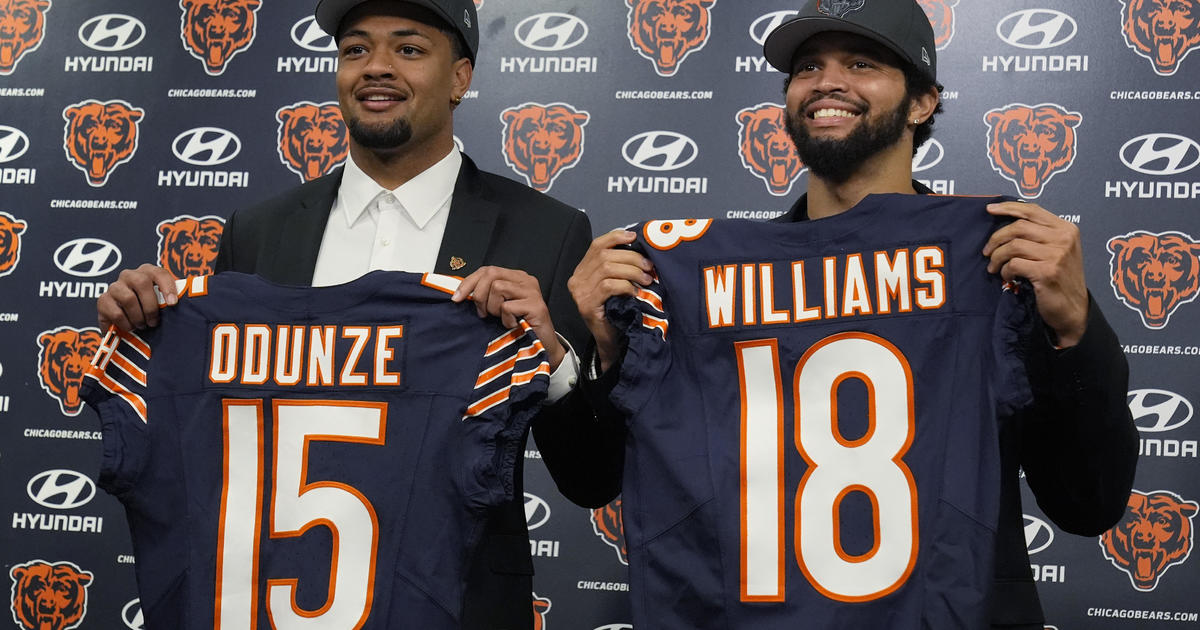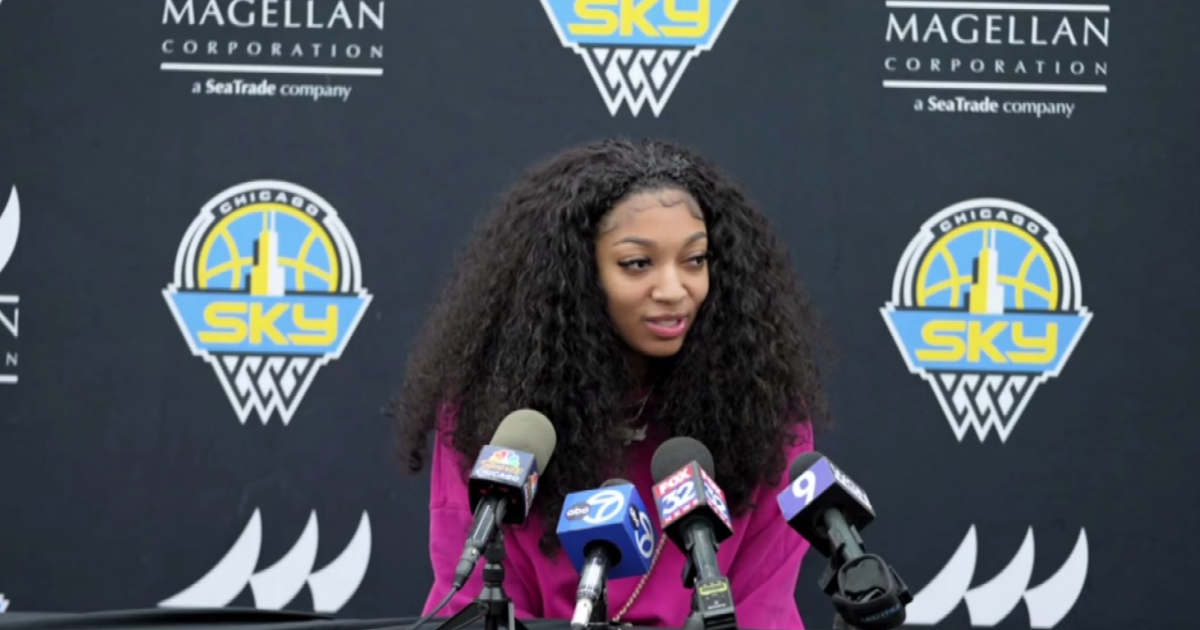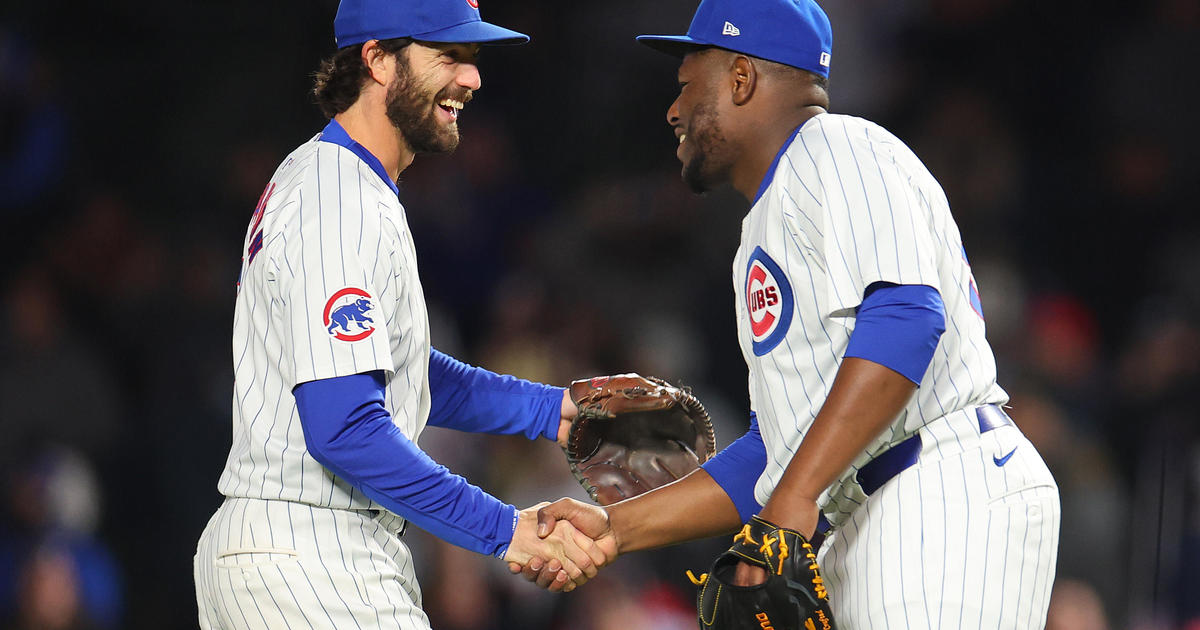Baffoe: 'League Of Denial' Causes Me To Face An Addiction
By Tim Baffoe-
(CBS) Sometimes I stop and think about my life with cigarettes.
Smoke two on the way to school. One at the start of my free teaching period as I raced to the back parking lot faster than the tardiest of slacker students to Chemistry. One at the end of that period before speed walking back to my next class. (I have fabulous calves, by the way.)
Light up immediately upon exiting the parking lot on the way home, hiding the cigarette at red lights so that students wouldn't see—an odd guilt I held over an otherwise legal activity. One more before pulling up to my house. (I had it down to a science as to when to light up at various geographical points that would allow for full cigarette enjoyment and extinguishing upon exact point of destination arrival.)
A cigarette after every delivery made at night. After every meal. One before putting head to pillow.
Clockwork. Conditioning. Smoking is called a habit, and it is in so many more ways than a nonsmoker knows. People would ask why I didn't quit, and I'd say because I didn't want to. I wasn't lying. I enjoyed smoking.
Then on June 26, 2012 I decided I didn't want to smoke anymore. It was disturbingly simple, looking back, to think that I fairly hastily decided to divorce myself from a major part of my life. Boom. Done.
I walked away from smoking.
My doctor prescribed patches and pills, but I decided just to go cold turkey. I haven't had a puff since.
I share this anecdote because while watching "League of Denial," the Frontline episode on PBS Tuesday night about the head injury issue in football, there is a scene documented where NFL commissioner Roger Goodell sits before a congressional committee to explain the league's handling and knowledge of its players' head injuries as related to their profession. Maybe you remember it—Goodell knew ahead of time basically what questions were going to be posed to him, and he repeatedly answered by saying he wasn't a medical professional and that he and the league would need more evidence from doctors before making any conclusions. And during the hearing Rep. Linda Sanchez (D-CA) points out how Goodell's testimony and that approach by the league as a whole smacks of similar hearings and investigations of the tobacco industry not so many years prior.
I've heard the equivalency of the two "lobbies" before, but I had yet to consider the similarities between the two as addictions. (I'm sure watching Jim Leyland manage a game shortly before viewing "League of Denial" had already burned cigarette symbolism into my brain for the night.)
But I won't deny it—I am addicted to football.
I compartmentalize the game, just as I used to do with cigarettes. The latter were slowly shaving years off of my life, and I knew it and never denied it. They yellowed my teeth and my fingers. They forced me into the cold and the rain. They added five minutes of violently ejecting lung butter to every morning shower.
And I still kept smoking.
Football is incredibly dangerous and unhealthy for its participants. This is not debatable. And damn if I don't love to watch it.
The Frontline episode was an example of how our football sausage is made. Such has never stopped me from consuming sausage—a staple of many a football tailgate party, no less. And a documentary abandoned by ESPN because of its $2 billion deal with the NFL (and to the credit of ESPN employee Steve Faineru and other Bristol folk who appear in it, this marriage is mentioned--"So they're basically paying around $120 million per game. That's like the budget of a Harry Potter movie. Every week. Week in, week out") is not going to stop me from consuming football.
The game is heinous. The game is highly entertaining. For three hours (at a time) I can check morals and ethics at the door. I want to see large men hit other large men very hard. Actually, I dislike the continued altering of league rules to make the game "safer" (if such a thing is possible).
It's like knowing that boxing is essentially barbaric, but no less enjoyable to witness (hell, football players used to be even diagnosed with a condition named after boxing). And perhaps football will succumb to Gladwellian theory as boxing has. I don't care about that while the game clock is running, though.
It's a vice, to put it politely. It's sadistic, to put it more bluntly. I gain pleasure from the choreographed pain of others. And I'm a bad, selfish person in that sense and will fully admit so. And I keep watching.
I keep watching even after my former pacifier—the argument of "The players knew what they were getting into, so don't feel sorry for them"—fell apart when the public was made aware (if it chose to listen rather than be ignorant) that the NFL deliberately misled its own players in a pamphlet handed out to them before the 2007 season that pseudo-explained concussions, saying that research "has not shown that having more than one or two concussions leads to permanent problems if each injury is managed properly," despite known evidence at the time to the contrary. It's one thing to have apathy for a guy fully aware of what he signs up for.
Such is not the case with how the NFL communicates to its players. You can't expect the soldier to fight if he's told by his superiors that what he's doing is wrong.
I keep watching knowing a player like former Pittsburgh Steeler Mike Webster lived out his final years in unspeakable pain and confusion and bitterness toward a league that created him. That Webster, as a friend of his tells in "League of Denial," needed others to hit him with a taser so he could pass out after not being able to sleep for days.
Hall of Famer Harry Carson (now an advocate against playing football) says in the program about the necessity of giving Webster headshots in order to beat him: "…I have to hit him in the face—I have to stun him—get my hands on him, throw him off when I see where the ball is going. And when I hit him in the face, his head is going back. He's going forward, but all of a sudden his head is going back, and his brain is hitting up against the inside of his skull." There's a pain in Carson's eyes as he speaks, though, because he knows that to be successful in football he had to do what we now know helped contribute to Webster dying at the age of 50 and becoming the first football player diagnosed (posthumously, the only way possible) with chronic traumatic encephalopathy or CTE.
I will keep watching despite knowing how the NFL set out to destroy Dr. Bennet Omalu, the pioneer in CTE research who first examined Webster's brain without even knowing at first that Webster was a famous football player, but who says now that he wished he had never had a dead Webster enter his life. Omalu has had league-affiliated doctors repeatedly defame him and question his honest practices, going so far as to insinuate he practices voodoo, which isn't racist at all.
Nor is there any sexism in a group of male doctors acting as a line of defense for all that is American machismo continuously attempting to discredit Dr. Ann McKee who has consistently linked head trauma in football with awful effect later in life.
There is a running theme of the "tough" city of Pittsburgh throughout the Frontline episode, with the city being representative of a physical strength we as a culture champion, yet also being the location of so many football players, young and old, who have suffered greatly from the game. A masculinity and pride in toughing things out. McKee was a rabid football fan most of her life, but after studying brains of deceased football players and receiving backlash for her objective findings, she's just a tad conflicted. I will keep watching despite the irony of glorifying what has happened in Steeltown.
I am not conflicted. At least not while there is a game on. When I hear about a high school kid in a coma or worse from football or the borderline criminal handling of a concussed athlete, I am truly bothered if not heartbroken. Then that Pavlovian whistle blows, and it's all good again.
The league made $9.5 billion in 2012 yet settled with injured retired players to the tune of $765 million in compensation and silencing. And it still fights tooth and nail with retirees' disability claims. And I will keep watching.
I will keep watching while fully aware that the NFL is fully aware of the harm being caused to its employees. How it acknowledged years ago that football causes brain injuries, then denied it, then admitted concussions have long-term effects, then reverted back to "We don't know and need more evidence" after getting pissed that researchers didn't shut up as subconcussive hits were shown to be bad for the brain as well.
Football is an addiction for me. One that affects millions of people, sometimes causing them to do very irrational things like show up to a player's home to curse his existence. Or in my case, causes one to compartmentalize for the better of oneself and the worse of others.
Ask me why I keep watching, and I'll tell you I enjoy it despite very much knowing and accepting the brutal negatives. And I'm not ready to walk away yet.
Tim Baffoe attended the University of Iowa before earning his degree from Governors State University and began blogging at The Score after winning the 2011 Pepsi Max Score Search. He enjoys writing things about stuff, but not so much stuff about things. When not writing for 670TheScore.com, Tim corrupts America's youth as a high school English teacher and provides a great service to his South Side community delivering pizzas (please tip him and his colleagues well). You can follow Tim's inappropriate brain droppings on Twitter @TimBaffoe , but please don't follow him in real life. He grew up in Chicago's Beverly To read more of Tim's blogs click here.




